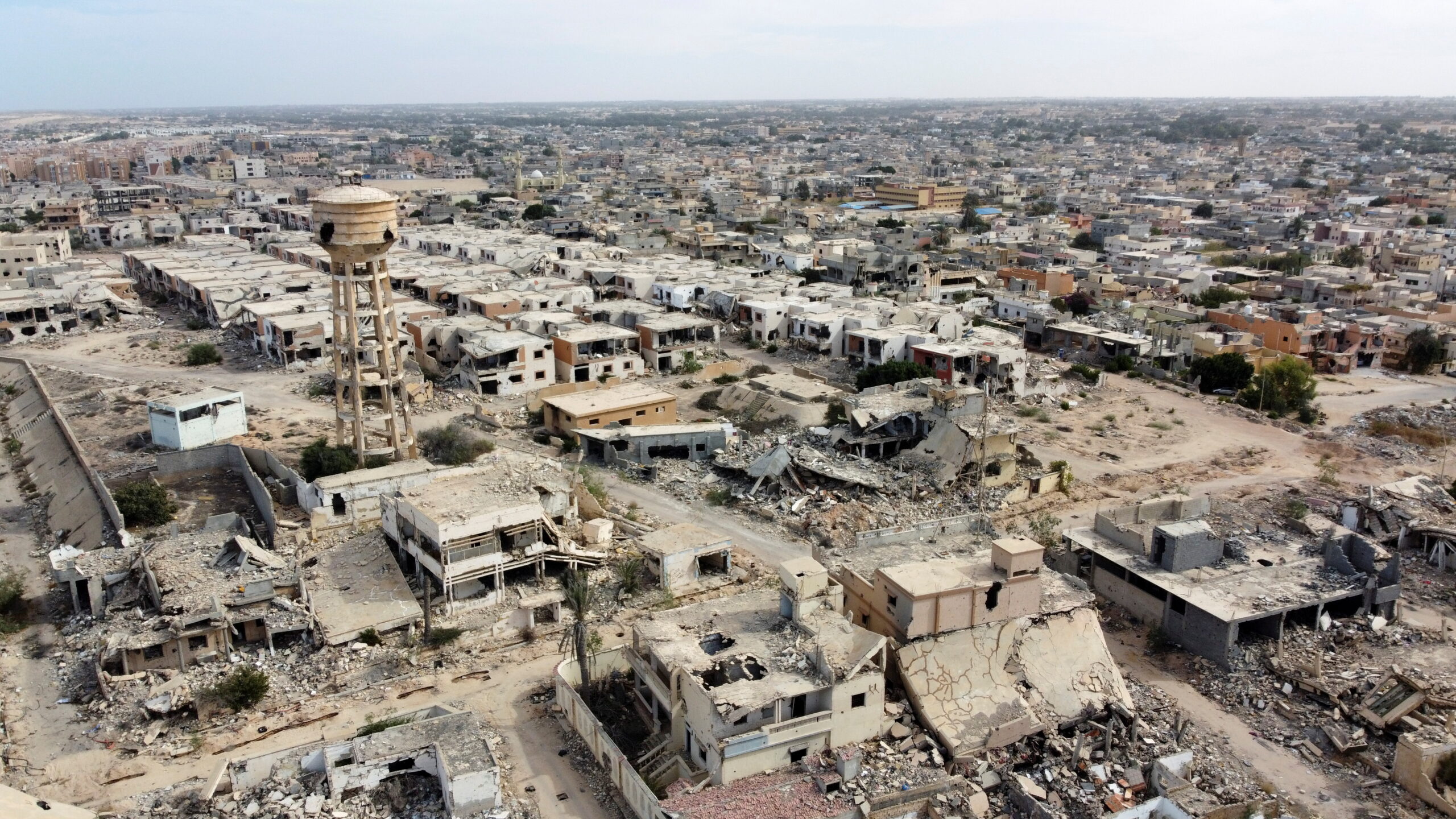
A view shows damaged buildings in Sirte, Libya November 4, 2021. Picture taken November 4, 2021. Picture taken with a drone. REUTERS/Islam Alatrash
Libya, a nation scarred by years of political turmoil and violent conflict, is taking cautious steps toward recovery.
More than a decade after the fall of Muammar Gaddafi plunged the country into chaos, and two years after major hostilities officially ended in 2023, Libya is beginning to piece itself back together—with critical support from its powerful neighbour, Egypt.
The fragility of peace remains evident. A deadly flare-up on May 12, 2025, in Tripoli underscored the country’s persistent volatility, as deadly clashes erupted between the 444th Infantry Brigade and the Stability Support Force following the assassination of commander Abdelghani al-Kikli.
But amid this instability, reconstruction efforts are starting to take form, particularly in eastern Libya.
On July 5, the Libyan Fund for Development and Reconstruction signed major agreements with three Egyptian firms—Organi Group, its subsidiary Neom, and Wadi El Nile—to begin large-scale infrastructure projects in the battered cities of Benghazi, Derna, and Tobruk.
The deal represents a critical economic lifeline for Libya’s east, a region devastated by years of civil war and natural disasters.
Among the priorities are the overhaul of the road network, development of new infrastructure, and restoration of electrical systems essential to everyday life.
These investments are expected not only to improve basic public services but also to jumpstart local economies.
Egypt’s role in Libya’s recovery extends far beyond construction contracts.
The agreements were signed on the same day Egyptian President Abdel Fattah al-Sisi received Aguila Saleh, speaker of the eastern Libyan Parliament, in Cairo—highlighting a broader strategy of regional diplomacy.
Egypt is positioning itself not only as Libya’s economic partner but as a stabilising force in North Africa, reaffirming its geopolitical influence at a time of shifting alliances in the Maghreb.
For Libya, rebuilding remains a monumental task.
But with Egypt’s involvement, eastern cities may soon see tangible progress—roads repaved, lights restored, and services returned.
In a region long defined by fragmentation, this new cooperation could mark the beginning of a fragile but necessary unity.



